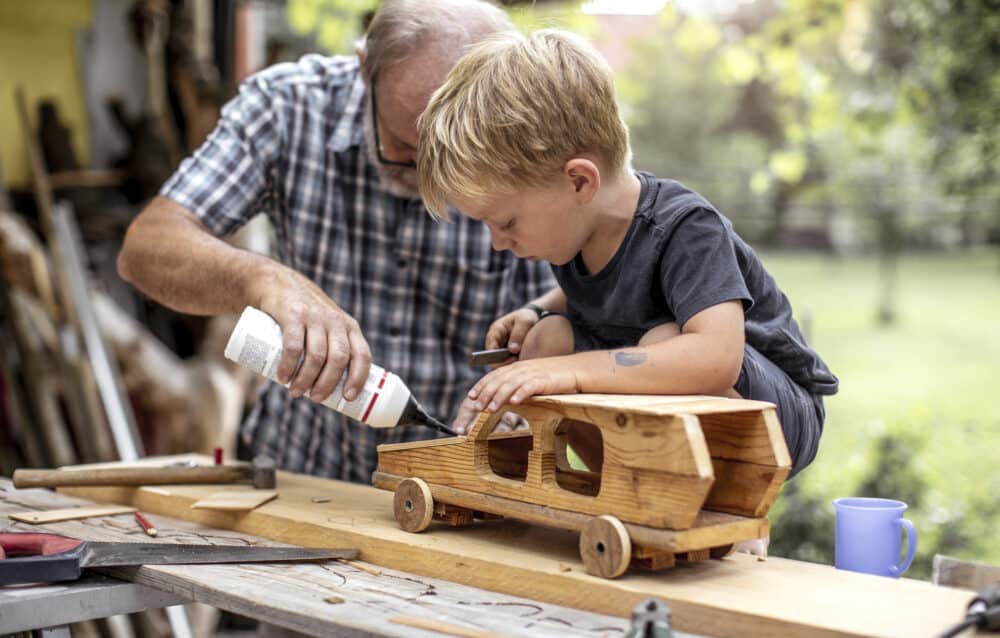In today’s rapidly evolving world, where technology and trends shift at an unprecedented pace, the value of passing down practical skills and cherished traditions from generation to generation cannot be overstated. This timeless practice preserves our cultural heritage and equips us with essential life skills that foster resilience, adaptability, and a profound sense of identity. This comprehensive guide delves into the profound significance of intergenerational knowledge transfer, shedding light on its benefits, strategies, and the intrinsic connection it establishes between the past, present, and future.

Embracing the Wisdom of the Past
In a world dominated by fleeting trends and digital innovations, the wisdom gleaned from the experiences of our forebearers remains a beacon of stability and insight. By learning from the practical skills and traditional practices refined over centuries, we gain a profound understanding of foundational techniques that continue to stand the test of time. From artisanal craftsmanship to age-old farming methods, these time-honored skills serve as a bridge between generations, ensuring the preservation of essential expertise that might otherwise be lost.
Fostering Family and Community Bonds
Passing down practical skills and traditions transcends the simple transfer of knowledge; it nurtures deep family and community bonds. Individuals forge connections that span ages and cultivate a sense of unity in gathering to learn and teach. Grandparents impart their mastery of woodworking, sewing, or cooking, while the younger generation shares their insights into the digital realm. This exchange creates a rich tapestry of experience, where each thread contributes to the fabric of shared heritage and mutual respect.
Strategies for Effective Knowledge Transfer
While the value of intergenerational knowledge transfer is undeniable, its execution requires careful planning and strategy. Here are some effective approaches to ensure the seamless passage of skills and traditions:
1. Hands-On Apprenticeship
Apprenticeship, a time-tested method, involves direct learning under the guidance of a skilled mentor. This immersive approach allows the apprentice to observe, ask questions, and engage in practical application, facilitating a holistic understanding of the skill or tradition.
2. Storytelling and Oral Tradition
Storytelling serves as a powerful conduit for cultural transmission. Elders sharing anecdotes and experiences captivate younger audiences and embed important lessons and values in their narratives, creating a lasting impact that transcends generations.
3. Workshops
Structured workshops provide a platform for knowledge dissemination in a focused environment. Whether it’s a knitting circle or a coding workshop, these sessions encourage active participation and collaborative learning.
4. Digital Documentation
Incorporating modern technology, such as video recordings and online platforms, ensures that practical skills and traditions are preserved in perpetuity. Digital archives allow for wider accessibility, enabling future generations to engage with their heritage at their convenience.
The Enduring Impact on Identity and Resilience
As practical skills and traditions are handed down, a profound impact is felt on personal and collective identity. Individuals gain a sense of belonging as they connect with their cultural roots, fostering a resilient mindset that draws strength from the knowledge that has weathered the trials of time. Moreover, these shared practices provide a sense of stability amidst the chaos of change, offering a reliable anchor to navigate the challenges of the modern world.
Preserving Cultural Heritage for Future Generations
In an era of globalization, preserving cultural heritage becomes imperative. Intergenerational knowledge transfer safeguards our unique practices and ensures they continue to thrive in the face of homogenizing forces. From indigenous crafts to regional cuisines, these traditions form the rich tapestry of our global community, celebrating diversity and fostering cross-cultural understanding.
From generation to generation, passing down practical skills and traditions encapsulates the essence of continuity and growth. It binds individuals across time, nurturing a sense of identity, resilience, and shared purpose. In a world that sometimes prioritizes the ephemeral, these enduring practices offer a timeless connection to our roots, enriching our lives and the lives of generations to come.
